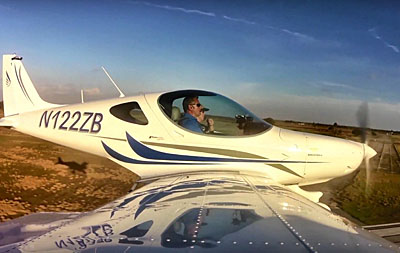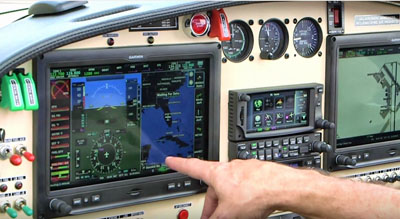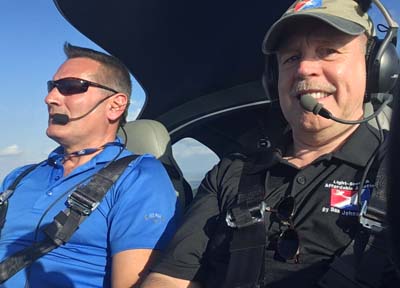
“It cannot be done,” is the quick dismissal from many in aviation, referring to instrument flying in a LSA. In 2017, I venture to say everyone in aviation (worldwide) knows about Light-Sport Aircraft and the Sport Pilot certificate, but a superficial knowledge can be a bad thing. The details unveil more.
Think about IFR in an LSA this way: Can you fly IFR in a homebuilt aircraft? Can you do so in a Cessna 172? Does it matter that these two distinct types have not gone through a thorough IFR evaluation by FAA? If you know those answers then why should such flying be prevented in LSA?
It’s true, the industry committee called ASTM F.37 issued advice on this subject to LSA producers. F.37 is the group that has labored for a dozen years to provide FAA with industry consensus standards allowing FAA to “accept” (not “certify”) SLSA. The group has been working on a IFR standard for some time without arriving at consensus. Partly because the work is not done the committee urged manufacturers not to openly sell IFR capability until the standard was in place and accepted by FAA. (The agency accepts standards and aircraft under different processes.)
F.37’s advice is directly related to a present lack of such a standard and possible resistance from legacy aircraft producers. However, neither the committee’s advice nor the regulation creating SP/LSA prevents you from filing IFR. Instead yes-or-no relates to a manufacturer’s preference plus written FAA-issued operating limitations.
So, as some say, it cannot be done, right? Wrong.
Bristell USA, importers of the superlative LSA of the same name built in the Czech Republic by BRM Aero, has a different approach. They use the ELSA opportunity.
An Experimental LSA starts out as a bolt-for-bolt copy of the SLSA version. Once issued its airworthiness certificate the owner can elect changes. He or she may not use an ELSA for compensated flight instruction or rental, but in other ways, they are significantly the same airplane. Am ELSA owner can change panel gear and other components (even including the engine) and need not seek permission for each change from the manufacturer.
Rather than repeat facts already reported here, I refer you to these articles: “A Raging Debate… IFR, IMC, VMC, and LSA” — “IFR and LSA: Much Ado About… What?” — “IFR ‘Certification’ of Avionics” — and, for those who want to examine FAA’s exact words, go to “FAR Part 91.205 (required equipment for IFR)”.
At Sebring 2017, I flew with Bristell USA‘s John Rathmell. John is not only a highly experienced pilot, he is knowledgeable about Bristell’s IFR option. In our video shown below, I asked John to cover some of this detail for you and he was most accommodating.
Now, I understand plenty of readers of this website or viewers of the many videos produced by Videoman Dave and myself perhaps do not care a whit about flying IFR. If you fly strictly for fun in nice weather, good for you! Have at it and enjoy! Yet, if you like the versatility of IFR, it is possible.
To fly under IFR rules, the pilot must have an IFR rating on his or her Private or better pilot certificate, that person must be current in those skills, and the airplane must be qualified by the means referenced above and maintenance must be up-to-date. You cannot — and more importantly should not — go fly into clouds simply because you have wonderful equipment on board from companies like Dynon, Garmin, or MGL.
In summary, if you are an instrument pilot, and if you are current, and if you have a medical, and if you purchase an aircraft like the Bristell and register it as an ELSA, no regulation prevents you from filing and flying IFR including into IMC. Only you can judge if that is a smart activity for you, and I hope you’ll do so wisely.
Hear more about IFR in a Bristell and join John and I for a flight in this gorgeous, well flying Light-Sport Aircraft in the following video:




Leave a Reply